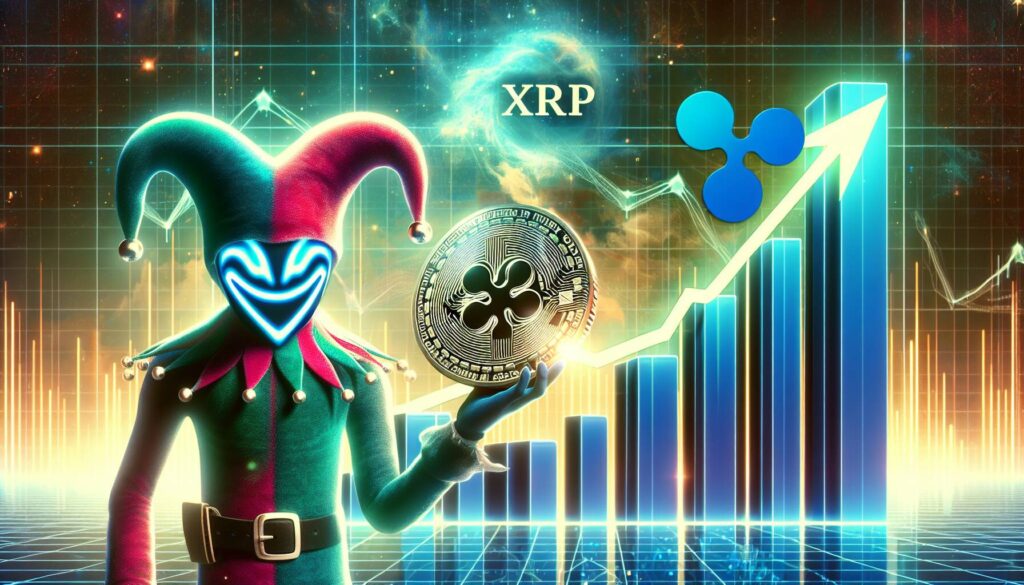In a significant development within the cryptocurrency sector, a billion investment initiative has been launched by Sky, previously known as MakerDAO. This ambitious plan aims to accelerate the adoption of real-world asset (RWA) tokenization on the decentralized finance (DeFi) platform Spark. Key players in this landscape include BlackRock, Securitize, Superstate, and Centrifuge, each set to receive substantial allocations from this fund.
Specifically, BlackRock and Securitize’s tokenized Treasury products, known as BUIDL, will receive a hefty 0 million allocation, bolstered by U.S. Treasury bills and repurchase agreements. Meanwhile, Superstate’s USTB will be allocated 0 million, and Centrifuge’s JTRSY, which is a Treasury bill fund developed in partnership with asset managers Anemoy and Janus Henderson, is set to receive 0 million. This funding underlines a growing trend in the crypto market, especially as the tokenized U.S. Treasuries segment continues its rapid expansion, now valued at an impressive .6 billion as per rwa.xyz data.
“The selection process involved evaluating 39 applicants, with advisory firm Steakhouse Financial playing a crucial role. Winners were chosen based on their liquidity and capital efficiency,” said Spark in a press release, emphasizing the competitive nature of this initiative.
Pending governance approval, these tokenized assets could potentially be utilized as collateral for Sky’s stablecoin, USDS, as well as its yield-bearing variant, sUSDS. This integration of traditional financial assets into blockchain protocols reflects a transformative shift in the landscape of finance, merging established monetary instruments with digital innovation.
This strategic move is part of Sky’s broader mission, announced for 2024, to invest a total of billion in tokenized U.S. Treasury bills, indicating considerable interest from a variety of asset issuers. As traditional finance continues to intersect with blockchain technology, these developments could pave the way for a new era in decentralized finance.

Tokenized Treasury Products Investment Overview
This investment initiative represents a significant shift towards integrating real-world assets into decentralized finance, which could impact various financial activities and viewers’ lives.
- Investment Overview:
- Sky, formerly known as MakerDAO, has initiated a billion investment plan focused on tokenized treasury products.
- Key beneficiaries include:
- 0 million allocation to BlackRock’s BUIDL, secured by U.S. Treasury bills and repurchase agreements.
- 0 million investment in Superstate’s USTB.
- 0 million invested in Centrifuge’s JTRSY, in partnership with Anemoy and Janus Henderson.
- Selection Process:
- 39 applicants evaluated by Steakhouse Financial, focusing on liquidity and capital efficiency.
- Final allocations capped at billion and driven by market demand.
- Collateralization Potential:
- The selected assets may serve as collateral for Sky’s stablecoin, USDS, and its yield-bearing version, sUSDS.
- Market Impact:
- Expected to bolster the growing tokenized U.S. Treasuries market, which is currently valued at .6 billion.
- Reflects a broader trend of integrating traditional financial assets into blockchain protocols.
- Future Outlook:
- Sky plans further investments in tokenized U.S. Treasury bills, signaling ongoing interest from diverse issuers.
This initiative could lead to enhanced liquidity and efficiency in financing options for individuals and organizations, possibly impacting everyday financial interactions and investment strategies.
Sky’s Billion Tokenized Treasury Investment: A Game-Changer in DeFi
In a bold move, Sky, formerly known as MakerDAO, is embarking on an ambitious billion investment strategy targeting tokenized treasury products, with allocations to notable players like BlackRock-Securitize, Superstate, and Centrifuge. This initiative is not just a significant financial maneuver; it also marks a crucial step towards broader adoption of real-world asset (RWA) tokenization within decentralized finance (DeFi). With Sky’s decentralized platform Spark taking the lead, this plan could set the stage for a major industry shift.
Competitive Advantages: The selection of BlackRock’s BUIDL, Superstate’s USTB, and Centrifuge’s JTRSY illustrates a strategic recognition of liquidity and capital efficiency—a move that highlights the growing confidence of traditional players in DeFi frameworks. By partnering with established asset management firms, these tokenized products are spurred on by credibility and trust, luring in more conservative investors who might have previously hesitated to dive into the DeFi space.
Moreover, the billion allocation serves as a catalyst for innovation within the tokenized assets realm, particularly the burgeoning market for tokenized U.S. Treasuries, which is already gaining traction, estimated at .6 billion currently. With BUIDL and others positioning themselves to capture a share of this expanding market, they are poised to attract new users and significantly enhance engagement on the Spark platform.
Disadvantages: However, this aggressive push might not come without challenges. The decision-making process, evaluated by Steakhouse Financial, while thorough, might raise eyebrows among smaller players who could perceive the framework as favoring the already established giants. There’s a risk that innovation could stifle competition if large allocations lead to a centralization of market influence, potentially diminishing the appeal for newer entrants in the space.
The centralized governance that Sky employs can also create friction. As stakeholders await governance approval for their tokenized assets to be used as collateral for USDS and sUSDS, there might be inherent delays and unpredictability involved, which could frustrate users looking for seamless interaction within the DeFi ecosystem.
Who Benefits and Who Faces Challenges: This move is a boon for institutional investors looking for a secure entry into DeFi, providing them with robust assets backed by U.S. Treasury bills. Moreover, offerings like the yield-bearing sUSDS have the potential to attract a wide array of investors seeking enhanced returns in a volatile market. However, smaller DeFi participants or startups could find themselves at a disadvantage, as they may struggle to compete with the reputation and resources of larger firms. If the trend continues toward consolidating assets within a few key players, it could alter the competitive landscape dramatically.
As more participants pivot towards integrating tokenized traditional assets, the wave of innovation could unlock new economic opportunities, albeit at the risk of creating a more clustered environment for new entrants. The implications of this investment by Sky are sure to resonate across the DeFi landscape as it evolves toward a more tokenized future.

















